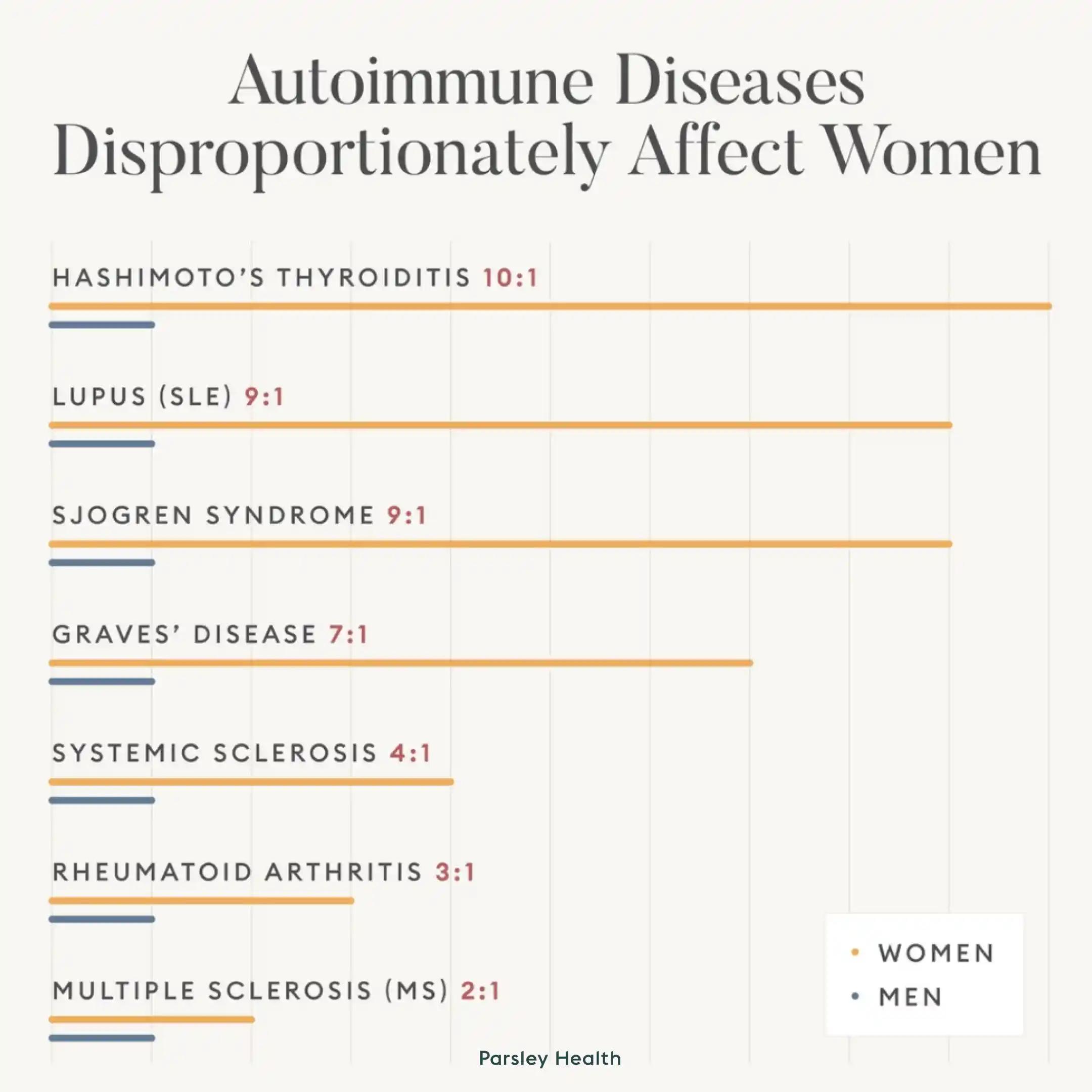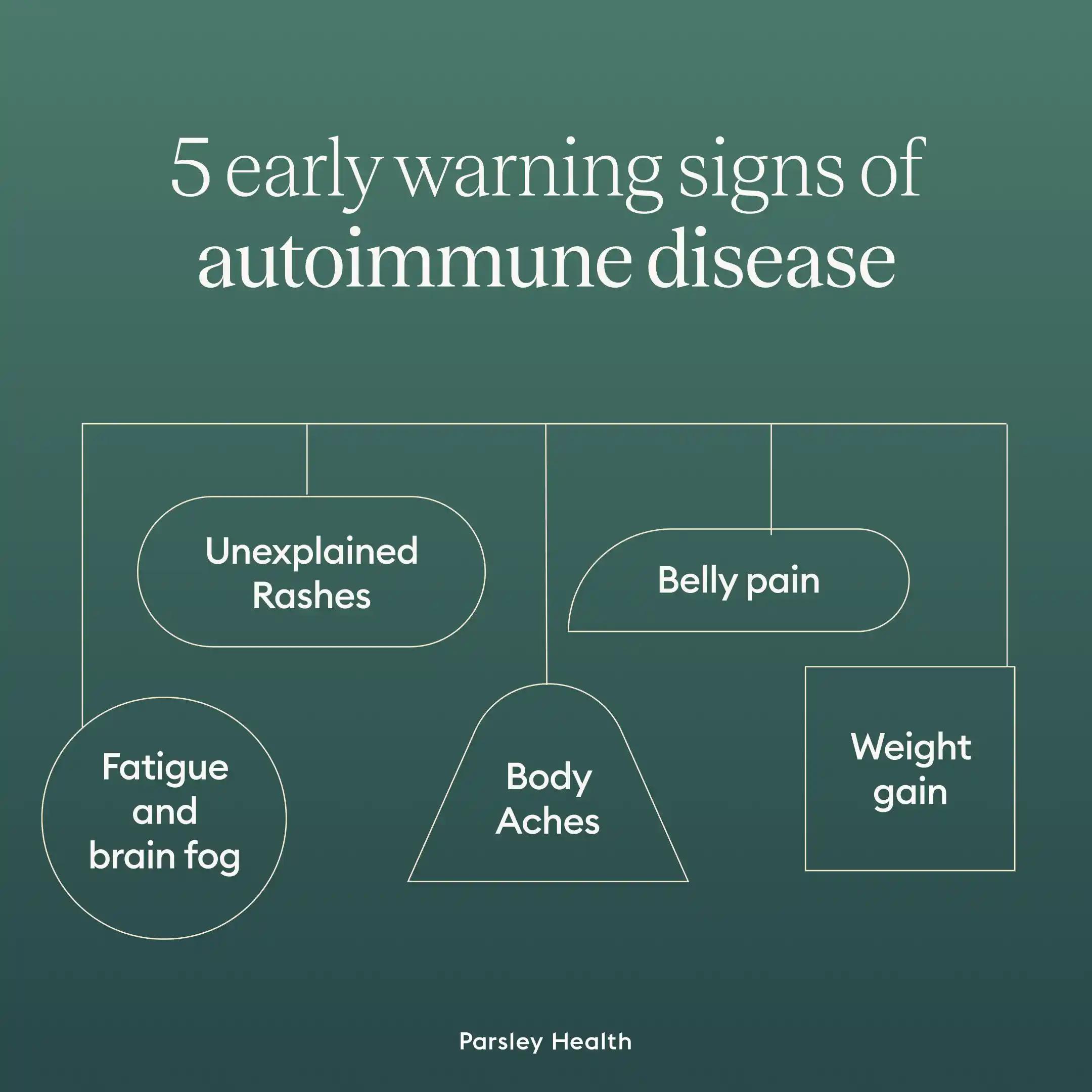This article has been medically reviewed by Nisha Chellam, MD. It contains additional reporting by Angela Myers.
What do Hashimoto’s disease, Lupus, and Rheumatoid arthritis have in common? They are all autoimmune diseases that can be reversed or slowed down when caught early. Autoimmune conditions impact between 24 and 50 million people in the United States—and millions of cases are currently undetected. These conditions are frequently missed by doctors because the early warning signs of autoimmune disease can be hard to detect.
Hard, but not impossible. Below are five early warnings to watch out for. If experiencing any, it's best to consult a healthcare provider to determine the underlying cause and a treatment plan.
What is autoimmune disease?
Autoimmune disease occurs when your body is unable to tell the difference between your own cells and foreign cells, making you more susceptible to infections and causing inflammation that leads to redness, pain, and swelling. Normally, your body’s immune system attacks germs like bacteria and viruses, but with an autoimmune disease, proteins called autoantibodies attack healthy cells.
Some common autoimmune disease symptoms include unexplained rashes, body aches, brain fog, and more—and can be more or less severe depending on the type of disease.









